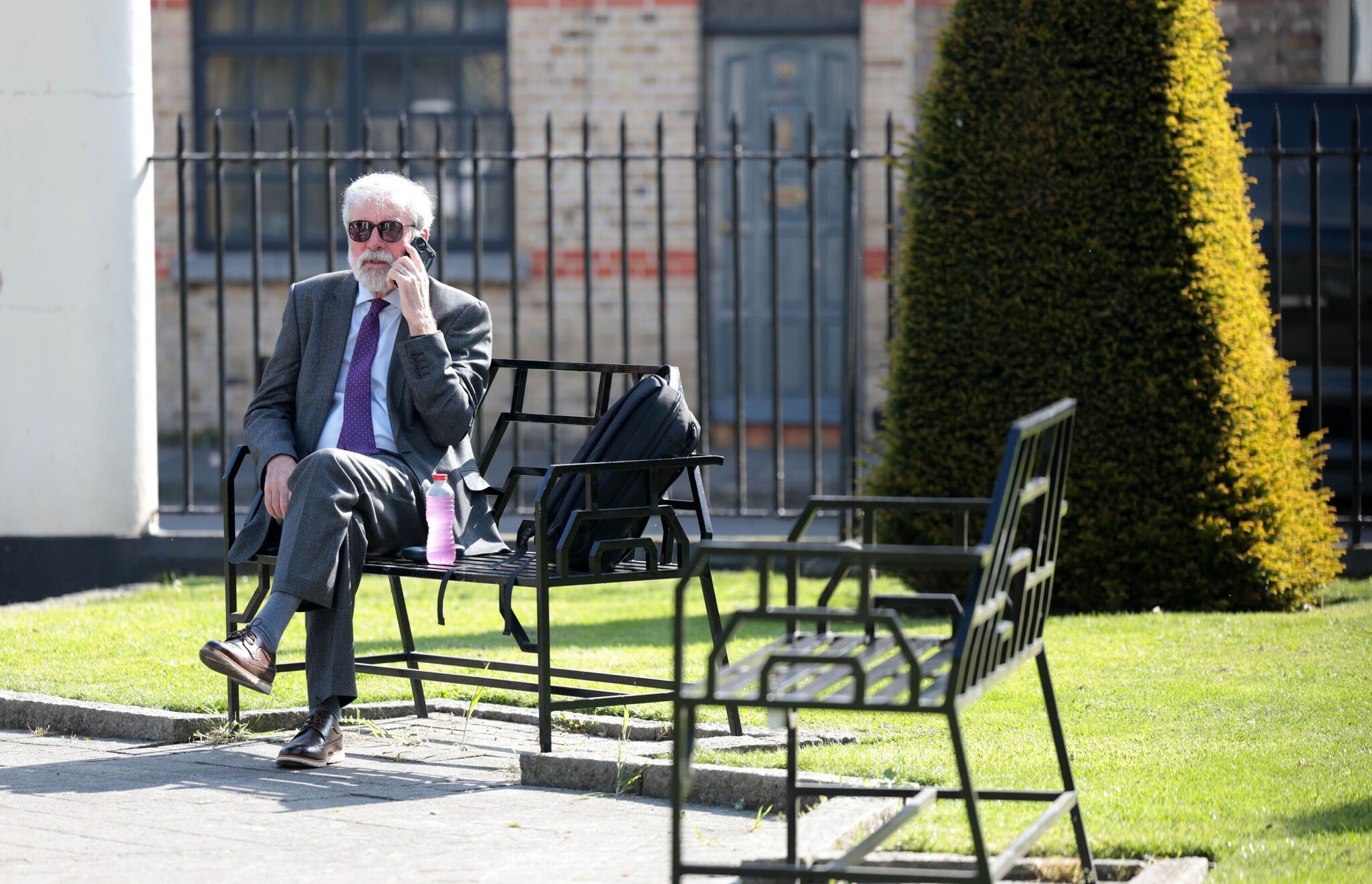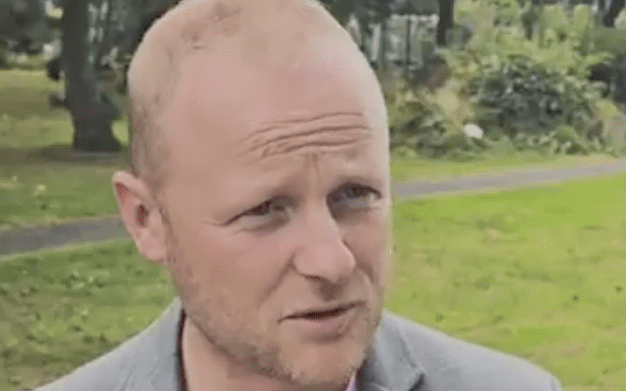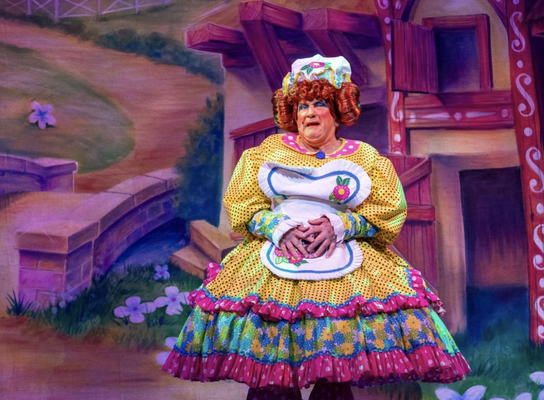AFTER the Gerry Adams libel trial, BBCNI had two options: Suck it up or appeal. Given the savage battering that was dealt to the local branch of the corporation, an appeal would at first blush appeared to have been a no-brainer.
The positives seemed too tempting to turn down. The potential saving of an estimated €3.5 to €5 million was a powerful lure to an organisation whose political enemies love nothing more than to revel in what they see as its financial promiscuity. Then there was the chance to rehabilitate reputations which have received not so much a punishment beating as a mixed grill. Throw in the chance to wipe the smile off Adams’ face and a red, white and blue satin ribbon tied up the gift box.
But if BBCNI Director Adam Smyth and Spotlight reporter Jennifer O’Leary are having flashbacks about the traumatic aftermath of the verdict, they would have been candidates for PTSD counselling if any appeal had been thrown out. Convincing an appeal court to overturn a unanimous verdict presided over by a highly respected and hugely experienced legal figure like Justice Alexander Owens was going to be one hell of an ask, but when the post-mortem on BBCNI’s trial strategy and performance had been so scathing, one wondered where the legal and tactical wherewithal was going to come from to carry the day in the appeal court.
In the end, Ormeau Avenue has taken its medicine – or perhaps more accurately, Ormeau Avenue has had its head tilted back, its nose nipped shut and the medicine forced down its throat by the BBC in London. Many and varied are the reasons that BBCNI lost the biggest libel case ever heard on the island of Ireland, but five things in particular cooked Auntie’s goose, five things that, piled on top of one another, were far too big a mountain for the BBC to climb. Five things that will henceforth define the case of Adams, Gerard -v- BBCNI.
1. Call Joe Soap
Attempting to win over a jury by convincing them that Gerry Adams is the spawn of the devil, too irredeemably stained by his past to be worthy of belief or compensation, was a deeply problematic strategy, but once decided upon it was a strategy that demanded a touch of nuanced, even Machiavellian, restraint. But rather than slip a stiletto occasionally between Adams’ ribs during the marathon trial and watch him slowly bleed out, BBCNI and its legal team decided to try and drop a 50-ton concrete bollard on his head from a great height. Not only did they miss, the bollard crashed into the seats in which sat the great and the good of BBCNI and their bank of expensive lawyers, destroying wood, wigs and hopes.
The attitude of each of the witnesses called by BBCNI towards Gerry Adams was to be found somewhere on a spectrum that went from seething hostility to spit-flecked detestation. Former Attorney General Michael McDowell, asked by counsel for Mr Adams if it would be fair to say he had a “hatred” for Sinn Féin, said “hatred is one way of putting it”. Trevor Ringland, a former member of the UUP and the Conservative Party, said Mr Adams was “a peace taker, not a peace maker”. Ann Travers, whose sister was shot dead by the IRA in Belfast in 1984, said Gerry Adams was “a warmonger”. All three had considerably more to add in their long aggregate hours of testimony.
ANIMUS: Michael McDowell was one of a number of witnesses called by BBCNI
The BBCNI team clearly thought they were on to a winner, as they had a list of further witnesses ready and willing to add to the Adams-ate-my-hamster zeitgeist, but those of us looking on shook our heads slowly at the madness of it all. So too, clearly, did the relatively young jury, liberally sprinkled with tattoos and beards, who could have been forgiven for thinking a) who are these people? and b) why are they talking about everything except the matter at hand?
2. Money talks
It probably seemed like a great idea when brains were being stormed in whiteboard sessions involving BBCNI and their legal team ahead of the trial. And the idea was this:
Right. Losing this case is simply not an option, but it’s one that we have to consider, regardless of the fact that it makes us shiver like an IRA colour party has walked over our graves. So let’s close our eyes, take a really deep breath, consider defeat and then see if we can turn that defeat into a victory. And the way to do that is through money. If Adams wins and gets paid a hundred or two hundred grand, we’re all going to be putting Domino’s signs on top of our cars afterwards. Now imagine if Adams won but he didn’t get any money. If Adams gets nothing, or even better, he gets awarded a nominal euro, he loses. He’s wangled a technical win but the judge and jury have agreed with us that he’s a bad ‘un. So even if we lose, we win.
The allure was obvious, but face-palmingly superficial. And yet they went for it. At strategic points in the trial the court heard counsel for the BBC argue that even if Gerry Adams had been defamed by the Spotlight programme and accompanying online article, his past made him unworthy of a cold cent. In his closing argument, BBC counsel Paul Gallagher SC (another former Attorney General) was willing to contemplate the appalling vista of Gerry Adams winning the case, but not that of him being awarded damages. “What sort of cruel joke would that be? That he can continue to deny any [IRA] association and come into court and say ‘I am a peacemaker.’” He urged the jury to dispense with the notion of huge damages raised by Mr Adams’ counsel and reminded them that it was open to them to award him that magical “one euro”.
Trouble was, this said exactly to the judge and jury what it said to everyone sitting in the press benches, in the public gallery and reading and listening to media reports at home. And what it said was: “We think we might be on to a loser here. We recognise that we’re on a sticky wicket, but we’re hopeful that the jury will pull us out of a hole.”
Chest-puffing, shoulder-back, lapel-thumbing confidence is key to convincing any jury of the righteousness of your case. But rather than go about their work with an assured and understated swagger and an aura of righteousness, the BBC’s case became pickled in doubt and uncertainty.
• This was powerful, forensic journalism (but if you decide it wasn’t please go easy on us).
• Our journalism did not defame Gerry Adams (but if you decide it did please go easy on us).
• Gerry Adams’ past precludes him from the reliefs and protections of the law available to others (but if you decide it doesn’t please go easy on us).
It was a shockingly ill-advised plan, one that reeked of desperation. And it got the reception it deserved.
3. The Shaggy gambit
Honey came in and she caught me red-handed,
Creepin’ with the girl next door.
Picture this, we were both butt-naked,
Bangin’ on the bathroom floor.
Despite the prima facie nature of his infidelity in the 2000 reggae crossover megahit, Shaggy continued to argue “It wasn’t me.” A funny, bawdy song is fine for the beer bikes in the city centre, but it’s no basis for a Four Courts defamation. But back at that pre-trial whiteboard brainstorming session, nobody pointed that out.
See if you can make sense of this one, because all these weeks later I can’t, and libel has been a central part of my job for coming up to 40 years…
The BBC argued that the claim in the programme that Gerry Adams sanctioned and approved the murder of Denis Donaldson was not a claim at all. They said it was merely an “allegation”. And making that “allegation”, they argued, was “fair publication” as it was was “in the public interest” and the BBC had acted “in good faith” and “fairly and reasonably”.
The jury found, of course, that the BBC had not acted “in good faith” and it’s not hard to see why as we pick through the bones of an argument that saw more raised eyebrows than you’d see at a Roger Moore convention.
Try this: You open your daily newspaper over your morning cup of tea and slice of bap and there’s a Charlie Manson-style picture of you on the front page alongside a story that claims you’re a murdering, bank-robbing, paedophile kidnapper. Since you’ve never had so much as a fine for spitting out chewing gum, you’re not going to be happy. You’re going to be so not happy, in fact, that you’re going to bring in m’learned friends. Some way down the line your morning newspaper tells your legal team that they didn’t actually say you were a murdering, bank-robbing, paedophile kidnapper. They merely reported that somebody said you were.
So. Do you say, “Ah, I see” and go home? Or do you tell them to catch themselves on?
That’s where Adams found himself with the BBC. When he asked them what they proposed to do about the fact that they had published something that was untrue, they raised their arms up palms outward and said they had merely reported what some bloke called ‘Martin’ had said. The Shaggy defence.
Of course blokes like Martin say things all the time, but as long as they’re only saying them while they’re propping up some bar there’s not a lot of harm done (unless you want me to wander off into the arcane field of slander, which I l know you don’t). The harm is done when BBCNI puts what Martin says in its flagship current affairs programme.
4. Back me up here
No journalist worth their salt is going to go to print or air with a claim by one bloke that the leading living Irish republican ordered and set up somebody to be murdered. That would be nuts. The aforementioned ‘Martin’ might well be an excellent source whose bona fides have been tested on numerous occasions and never found wanting, but you just don’t dive into a story of that size with a single source.
Happily, Spotlight reporter Jennifer O’Leary had not one corroborating source; not two; not three; not four; she had five corroborating sources backing up ‘Martin’s’ claim/ allegation about Gerry Adams and Denis Donaldson. And that’s not only enough to satisfy the most demanding editor and the most nitpicking office lawyer, that’s way over and above the call of journalistic duty.
Slight problem. The fact that five corroborating sources existed to back up ‘Martin’ wasn’t mentioned in the Spotlight programme, or in the accompanying online article. Ms O’Leary told the court that the five corroborating sources weren’t mentioned in the programme because that “ran the risk of being unfair to Mr Adams”. Why adding substance to a story would be unfair to the subject of the story is something which I’m sure the jury wondered about as much as I did.
Ms O’Leary told the court she had been travelling “non-stop” for months compiling the story. “I went out of my way to meet as many people and sources as I could,” she added. Counsel for Gerry Adams, Tom Hogan SC, asked her why, when she met Garda sources, she had not put the claim/allegation by ‘Martin’ to them. She replied that the Gardaí she had met had made it “explicitly clear” that they were focused on “the trigger men”. The jury may have been more than a little intrigued about the suggestion that Gardaí on the trail of whoever fired the gun that killed Denis Donaldson would not have been interested to hear a claim/allegation about who ordered the gun to be fired.
5. Back to the future
Jumping backwards from S for Shaggy in the Dictionary of Quotation to F for Faulkner, William, we find: “The past is never dead. It’s not even past.” This was never more true than during the long, hot month of May in the Four Courts in Dublin. If there was any sign of Gerry Adams’ past expiring, the BBC’s witnesses and legal team were on hand with paddles and a defibrillator to jolt it back to life. But to what end? And for the edification of what audience?
POST MORTEM: The BBCNI team speaking to the media outside the Four Courts
We’ve already heard of the relative youth of the jury, the oldest of whom were too busy studying for the Leaving Cert to take on board the epoch-making events of the peace process. Say the BBC had succeeded in convincing the jury that a gangly, youthful Gerry Adams wearing a black beret in the 1960s was a hot, smoking gun. Say they had convinced the jury that Gerry Adams – contrary to his repeated denials – had been a key figure in the IRA insurgency of the 70s, 80s and 90s. Say they had convinced the jury that among the varied protagonists the IRA was uniquely heinous. Then what?
In the 2003 thriller Runaway Jury, the late, great Gene Hackman plays Rankin Fitch, a ruthless jury consultant who’ll do whatever it takes to ensure a positive outcome for his wealthy corporate clients. The BBC’s legal team didn’t need Rankin’s sophisticated electronic surveillance equipment to tell them that a jury with little or no memory of the Troubles needed careful handling. Or perhaps, in retrospect, they did, because they learned the hard way that younger generations of Irish citizens often take a more considered view of the conflict than those of us who lived and suffered through it.
They are largely anaesthetised to the Troubles not only by the passage of time, but by the realisation from the daily global horrors they witness on their phones via social media that our tragic but low-intensity 30-year conflict was not that big a deal, relatively speaking. But most of all they are glad that the IRA’s gone and in all likelihood it isn’t coming back. And they’re glad Gerry Adams played a big part in that.
The BBC’s laser focus on Gerry Adams’ past might conceivably have punched through to a jury of over-50 Irish Independent-readers; but even that’s not a given. The passionate denunciations of the IRA and its actions may well have stoked the passions of a jury which watched those events on the RTÉ News in black and white; but they don’t mean much, if anything, to a smartphone jury used to seeing pictures of shredded babies hanging from telephone wires and video footage of drones taking out mechanised infantry.
For them, the North’s found a kind of peace in a world that’s losing its mind. And that’s something to be valued and protected, even if some old-timers like to tell their war stories and show their wounds.






